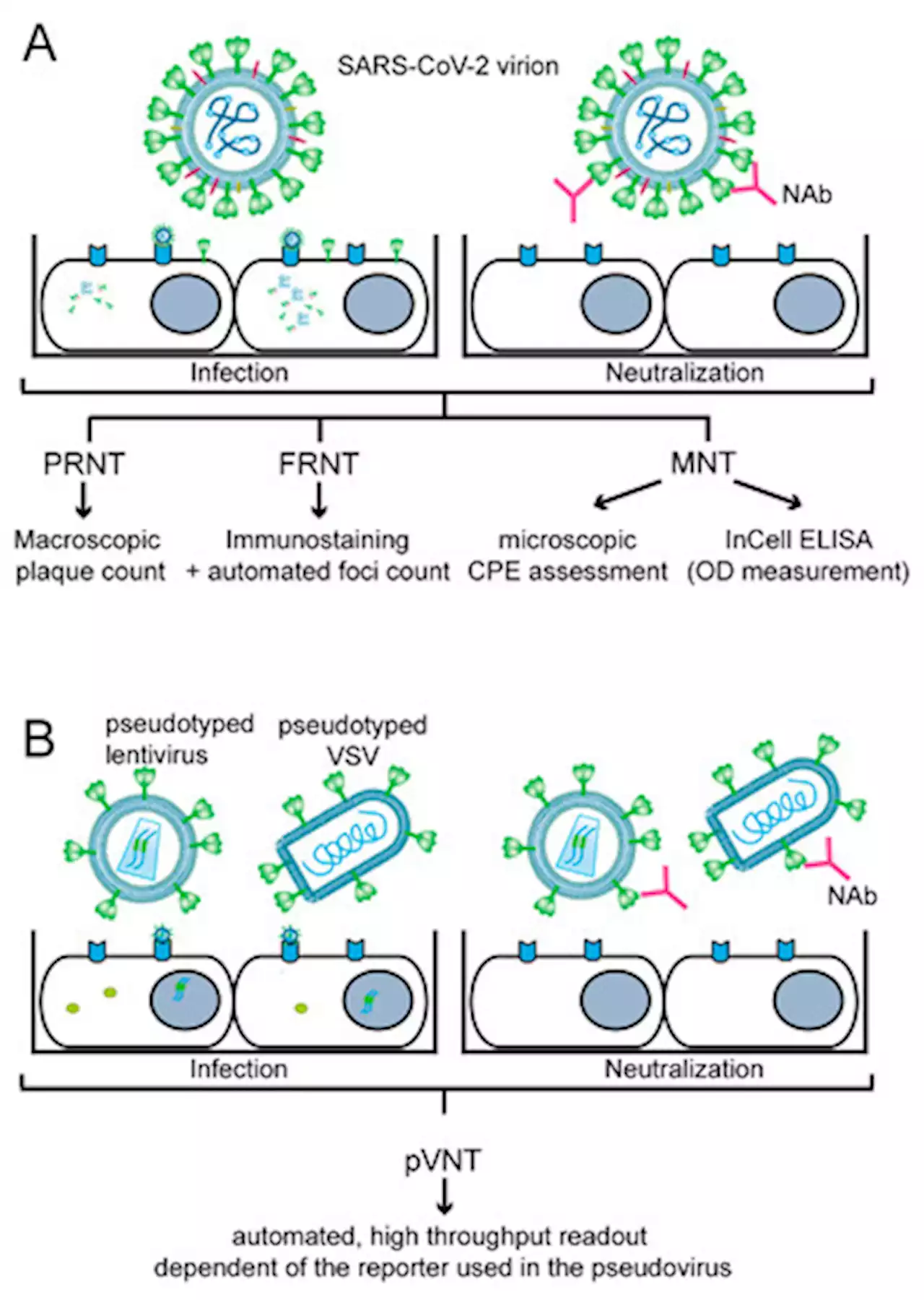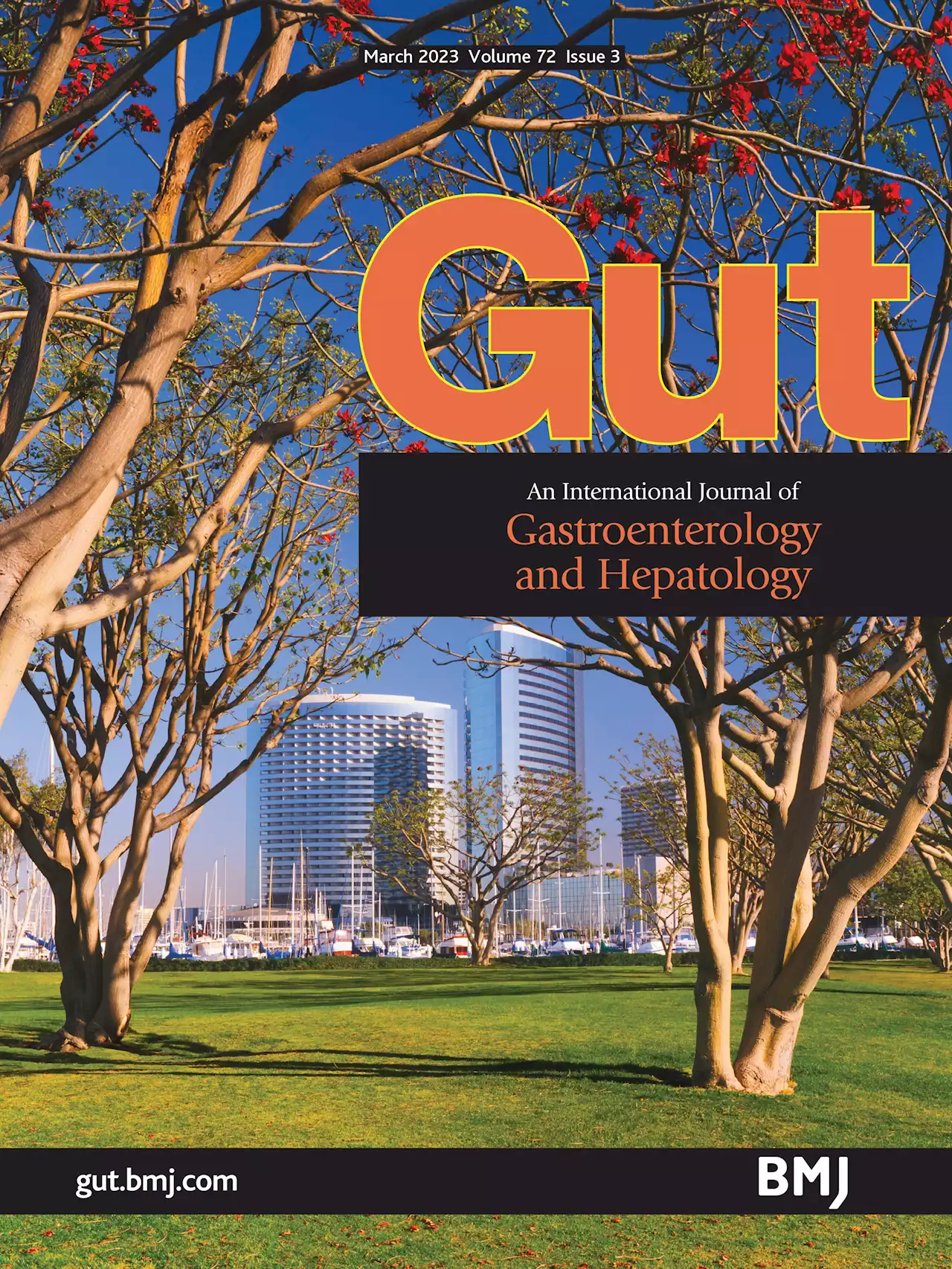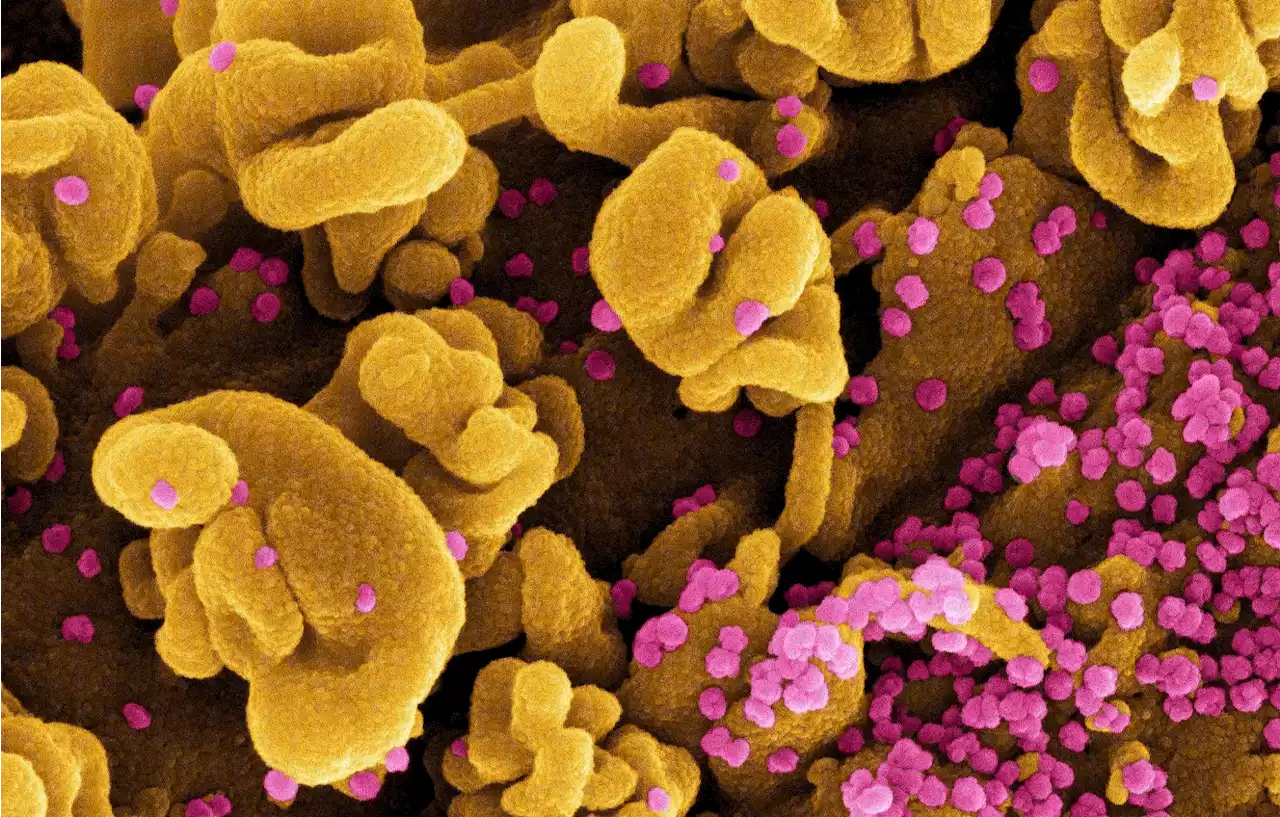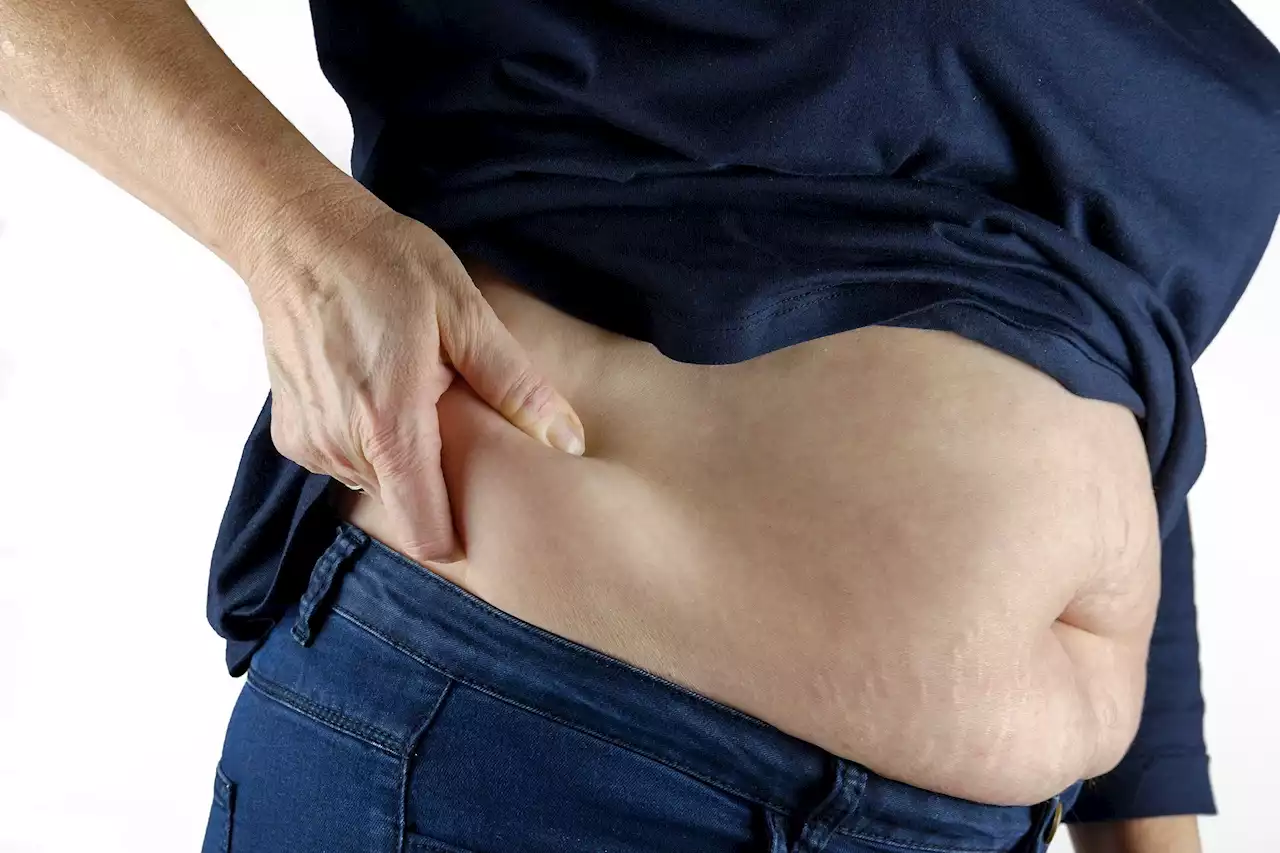Elevated mucosal immune response expedites COVID-19 recovery Coronavirus Disease COVID ImmuneResponse Mucosal ResearchSquare KingsCollegeLon nih_nhlbi UniofOxford imperialcollege
By Tarun Sai LomteMar 20 2023Reviewed by Benedette Cuffari, M.Sc. *Important notice: Research Square publishes preliminary scientific reports that are not peer-reviewed and, therefore, should not be regarded as conclusive, guide clinical practice/health-related behavior, or treated as established information.
About the study The present study explored how expression networks of inflammatory mediators contribute to clinical outcomes in STOIC participants with high and low SARS-CoV-2 burden. STOIC subjects with COVID-19 and healthy individuals were stratified into four nodes, including interferon , innate immunity-like, mucosal immunity-like, and chemokine-dominant at day 0 enrolment, which was based on the predominant inflammatory patterns.
Mucosal node expression was elevated in viralhigh participants as compared to virallow participants. No differences in innate node expression were observed between groups at either point. There were no differences in innate or IFN node expression in either intervention arm among virallow subjects after day 14, whereas standard care reduced chemokine and mucosal node expression. In high viral load participants, expression of IFN, chemokine, and mucosal nodes was decreased in both intervention groups; however, the innate node expression was unchanged.
United Kingdom Latest News, United Kingdom Headlines
Similar News:You can also read news stories similar to this one that we have collected from other news sources.
 The impact of long-COVID on professional soccerThe impact of long-COVID on professional soccer Soccer Football Coronavirus Disease COVID Sport LongCOVID medrxivpreprint CampusBioMedico
The impact of long-COVID on professional soccerThe impact of long-COVID on professional soccer Soccer Football Coronavirus Disease COVID Sport LongCOVID medrxivpreprint CampusBioMedico
Read more »
 Importance, Applications and Features of Assays Measuring SARS-CoV-2 Neutralizing AntibodiesMore than three years ago, the Severe Acute Respiratory Syndrome Coronavirus 2 (SARS-CoV-2) caused the unforeseen COVID-19 pandemic with millions of deaths. In the meantime, SARS-CoV-2 has become endemic and is now part of the repertoire of viruses causing seasonal severe respiratory infections. Due to several factors, among them the development of SARS-CoV-2 immunity through natural infection, vaccination and the current dominance of seemingly less pathogenic strains belonging to the omicron lineage, the COVID-19 situation has stabilized. However, several challenges remain and the possible new occurrence of highly pathogenic variants remains a threat. Here we review the development, features and importance of assays measuring SARS-CoV-2 neutralizing antibodies (NAbs). In particular we focus on in vitro infection assays and molecular interaction assays studying the binding of the receptor binding domain (RBD) with its cognate cellular receptor ACE2. These assays, but not the measurement of SARS-CoV-2-specific antibodies per se, can inform us of whether antibodies produced by convalescent or vaccinated subjects may protect against the infection and thus have the potential to predict the risk of becoming newly infected. This information is extremely important given the fact that a considerable number of subjects, in particular vulnerable persons, respond poorly to the vaccination with the production of neutralizing antibodies. Furthermore, these assays allow to determine and evaluate the virus-neutralizing capacity of antibodies induced by vaccines and administration of plasma-, immunoglobulin preparations, monoclonal antibodies, ACE2 variants or synthetic compounds to be used for therapy of COVID-19 and assist in the preclinical evaluation of vaccines. Both types of assays can be relatively quickly adapted to newly emerging virus variants to inform us about the magnitude of cross-neutralization, which may even allow us to estimate the risk of becoming infected by new
Importance, Applications and Features of Assays Measuring SARS-CoV-2 Neutralizing AntibodiesMore than three years ago, the Severe Acute Respiratory Syndrome Coronavirus 2 (SARS-CoV-2) caused the unforeseen COVID-19 pandemic with millions of deaths. In the meantime, SARS-CoV-2 has become endemic and is now part of the repertoire of viruses causing seasonal severe respiratory infections. Due to several factors, among them the development of SARS-CoV-2 immunity through natural infection, vaccination and the current dominance of seemingly less pathogenic strains belonging to the omicron lineage, the COVID-19 situation has stabilized. However, several challenges remain and the possible new occurrence of highly pathogenic variants remains a threat. Here we review the development, features and importance of assays measuring SARS-CoV-2 neutralizing antibodies (NAbs). In particular we focus on in vitro infection assays and molecular interaction assays studying the binding of the receptor binding domain (RBD) with its cognate cellular receptor ACE2. These assays, but not the measurement of SARS-CoV-2-specific antibodies per se, can inform us of whether antibodies produced by convalescent or vaccinated subjects may protect against the infection and thus have the potential to predict the risk of becoming newly infected. This information is extremely important given the fact that a considerable number of subjects, in particular vulnerable persons, respond poorly to the vaccination with the production of neutralizing antibodies. Furthermore, these assays allow to determine and evaluate the virus-neutralizing capacity of antibodies induced by vaccines and administration of plasma-, immunoglobulin preparations, monoclonal antibodies, ACE2 variants or synthetic compounds to be used for therapy of COVID-19 and assist in the preclinical evaluation of vaccines. Both types of assays can be relatively quickly adapted to newly emerging virus variants to inform us about the magnitude of cross-neutralization, which may even allow us to estimate the risk of becoming infected by new
Read more »
 Post COVID-19 irritable bowel syndromeObjectives The long-term consequences of COVID-19 infection on the gastrointestinal tract remain unclear. Here, we aimed to evaluate the prevalence of gastrointestinal symptoms and post-COVID-19 disorders of gut–brain interaction after hospitalisation for SARS-CoV-2 infection. Design GI-COVID-19 is a prospective, multicentre, controlled study. Patients with and without COVID-19 diagnosis were evaluated on hospital admission and after 1, 6 and 12 months post hospitalisation. Gastrointestinal symptoms, anxiety and depression were assessed using validated questionnaires. Results The study included 2183 hospitalised patients. The primary analysis included a total of 883 patients (614 patients with COVID-19 and 269 controls) due to the exclusion of patients with pre-existing gastrointestinal symptoms and/or surgery. At enrolment, gastrointestinal symptoms were more frequent among patients with COVID-19 than in the control group (59.3% vs 39.7%, p|0.001). At the 12-month follow-up, constipation and hard stools were significantly more prevalent in controls than in patients with COVID-19 (16% vs 9.6%, p=0.019 and 17.7% vs 10.9%, p=0.011, respectively). Compared with controls, patients with COVID-19 reported higher rates of irritable bowel syndrome (IBS) according to Rome IV criteria: 0.5% versus 3.2%, p=0.045. Factors significantly associated with IBS diagnosis included history of allergies, chronic intake of proton pump inhibitors and presence of dyspnoea. At the 6-month follow-up, the rate of patients with COVID-19 fulfilling the criteria for depression was higher than among controls. Conclusion Compared with controls, hospitalised patients with COVID-19 had fewer problems of constipation and hard stools at 12 months after acute infection. Patients with COVID-19 had significantly higher rates of IBS than controls. Trial registration number [NCT04691895][1]. Data are available upon reasonable request. Data are available on reasonable request. All figures have associated ra
Post COVID-19 irritable bowel syndromeObjectives The long-term consequences of COVID-19 infection on the gastrointestinal tract remain unclear. Here, we aimed to evaluate the prevalence of gastrointestinal symptoms and post-COVID-19 disorders of gut–brain interaction after hospitalisation for SARS-CoV-2 infection. Design GI-COVID-19 is a prospective, multicentre, controlled study. Patients with and without COVID-19 diagnosis were evaluated on hospital admission and after 1, 6 and 12 months post hospitalisation. Gastrointestinal symptoms, anxiety and depression were assessed using validated questionnaires. Results The study included 2183 hospitalised patients. The primary analysis included a total of 883 patients (614 patients with COVID-19 and 269 controls) due to the exclusion of patients with pre-existing gastrointestinal symptoms and/or surgery. At enrolment, gastrointestinal symptoms were more frequent among patients with COVID-19 than in the control group (59.3% vs 39.7%, p|0.001). At the 12-month follow-up, constipation and hard stools were significantly more prevalent in controls than in patients with COVID-19 (16% vs 9.6%, p=0.019 and 17.7% vs 10.9%, p=0.011, respectively). Compared with controls, patients with COVID-19 reported higher rates of irritable bowel syndrome (IBS) according to Rome IV criteria: 0.5% versus 3.2%, p=0.045. Factors significantly associated with IBS diagnosis included history of allergies, chronic intake of proton pump inhibitors and presence of dyspnoea. At the 6-month follow-up, the rate of patients with COVID-19 fulfilling the criteria for depression was higher than among controls. Conclusion Compared with controls, hospitalised patients with COVID-19 had fewer problems of constipation and hard stools at 12 months after acute infection. Patients with COVID-19 had significantly higher rates of IBS than controls. Trial registration number [NCT04691895][1]. Data are available upon reasonable request. Data are available on reasonable request. All figures have associated ra
Read more »
 XBB/XBB.1.5 subvariant of SARS-CoV-2 shows increased vaccine sensitivityThe study, currently available on the medRxiv* preprint server, indicates that omicron subvariant XBB/XBB.1.5 is more sensitive to vaccine-induced immunity than other co-circulating SARS-CoV-2 variants.
XBB/XBB.1.5 subvariant of SARS-CoV-2 shows increased vaccine sensitivityThe study, currently available on the medRxiv* preprint server, indicates that omicron subvariant XBB/XBB.1.5 is more sensitive to vaccine-induced immunity than other co-circulating SARS-CoV-2 variants.
Read more »
 Control of SARS-CoV-2 infection by MT1-MMP-mediated shedding of ACE2 - Nature CommunicationsThe role of soluble angiotensin converting enzyme 2 (sACE2) in SARS-CoV-2 infection is not well understood. Here, authors show that membrane type 1 matrix metalloproteinase (MT1-MMP) releases sACE2 to promote SARS-CoV-2 cell entry in vitro and in vivo, and the upregulation of MT1-MMP may contribute to increased susceptibility to SARS-CoV-2 infection in ageing.
Control of SARS-CoV-2 infection by MT1-MMP-mediated shedding of ACE2 - Nature CommunicationsThe role of soluble angiotensin converting enzyme 2 (sACE2) in SARS-CoV-2 infection is not well understood. Here, authors show that membrane type 1 matrix metalloproteinase (MT1-MMP) releases sACE2 to promote SARS-CoV-2 cell entry in vitro and in vivo, and the upregulation of MT1-MMP may contribute to increased susceptibility to SARS-CoV-2 infection in ageing.
Read more »
 Biological BMI: Researchers dig deep into data to determine better measures of metabolic healthInstitute for Systems Biology (ISB) researchers have constructed biological body mass index (BMI) measures that offer a more accurate representation of metabolic health and are more varied, informative and actionable than the traditional, long-used BMI equation. The work was published in the journal Nature Medicine.
Biological BMI: Researchers dig deep into data to determine better measures of metabolic healthInstitute for Systems Biology (ISB) researchers have constructed biological body mass index (BMI) measures that offer a more accurate representation of metabolic health and are more varied, informative and actionable than the traditional, long-used BMI equation. The work was published in the journal Nature Medicine.
Read more »
